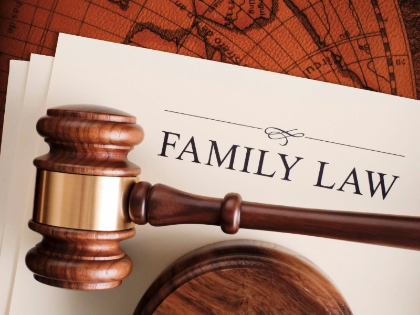Your Advocates in Family Court Proceedings: Family Lawyers
Legal matters pertaining to marriage, divorce, child support, and custody are handled by family lawyers. In addition, they support clients in domestic abuse instances and draft prenuptial agreements. In order to settle disputes outside of court, family lawyers may also assist with alternative dispute resolution techniques like collaborative law or mediation. Their clients save time and money as a result of this.
1. Neutrality

2. Lobbying
 To accomplish their goals, advocates work to advance a cause or viewpoint. Examples include charitable organizations that assist the poor and those in need, including the Child Advocacy Centers and the National Domestic Violence Hotline, as well as initiatives like Court-appointed Special Advocates that offer assistance to families of abused children.
Family law courts deal with a range of legal matters, including support, child custody, and divorces, that have an impact on the lives of individuals and families. In addition, they judge matters involving adoptions, juvenile delinquency, and domestic abuse.
Family cases are not the same as civil proceedings, where parties seek monetary damages. Furthermore, juries typically determine civil matters; judges typically hear family law issues. With a wealth of knowledge, Mr. Darren Shapiro assists clients in presenting their cases in the different family courts located in New York City and Long Island.
To accomplish their goals, advocates work to advance a cause or viewpoint. Examples include charitable organizations that assist the poor and those in need, including the Child Advocacy Centers and the National Domestic Violence Hotline, as well as initiatives like Court-appointed Special Advocates that offer assistance to families of abused children.
Family law courts deal with a range of legal matters, including support, child custody, and divorces, that have an impact on the lives of individuals and families. In addition, they judge matters involving adoptions, juvenile delinquency, and domestic abuse.
Family cases are not the same as civil proceedings, where parties seek monetary damages. Furthermore, juries typically determine civil matters; judges typically hear family law issues. With a wealth of knowledge, Mr. Darren Shapiro assists clients in presenting their cases in the different family courts located in New York City and Long Island.
3. Honest communication
 In family law matters, open communication is crucial. It makes it easier for your lawyer to comprehend your viewpoint and objectives, giving you more freedom to come up with solutions that reduce disputes. In addition, it encourages empathy and active listening, two qualities essential to a civil dispute settlement procedure.
Furthermore, consistent updates from your end enable your attorney to remain up-to-date on any new developments in the case. As a result, they may modify their legal strategy appropriately, avoiding unpleasant surprises in court and guaranteeing a customized approach to your case.
It is much more important to communicate well while dealing with the court. For instance, don't forget to address the judge as "Your Honor" and provide succinct, unambiguous answers to queries. If the judge's question is unclear to you, kindly request clarification.
In family law matters, open communication is crucial. It makes it easier for your lawyer to comprehend your viewpoint and objectives, giving you more freedom to come up with solutions that reduce disputes. In addition, it encourages empathy and active listening, two qualities essential to a civil dispute settlement procedure.
Furthermore, consistent updates from your end enable your attorney to remain up-to-date on any new developments in the case. As a result, they may modify their legal strategy appropriately, avoiding unpleasant surprises in court and guaranteeing a customized approach to your case.
It is much more important to communicate well while dealing with the court. For instance, don't forget to address the judge as "Your Honor" and provide succinct, unambiguous answers to queries. If the judge's question is unclear to you, kindly request clarification.
4. Alternative Processes for Resolving Conflicts
 Family law is a major component of legal conflicts in the United States. Therefore, the intricacies of family links might present particular difficulties in legal proceedings.
The goal of alternative conflict resolution techniques, such as mediation, collaborative law, and arbitration, is to promote understanding and cooperation as opposed to the adversarial aspect of typical court processes. Additionally, these approaches provide adaptable solutions that are suited to the specifics of each instance.
Through ADR, families can collaborate to find a solution that works for everyone. In addition, it provides a quicker and more affordable means of resolution than conventional litigation. These techniques also have the added benefit of being more discreet and preserving relationships. They can therefore be a very effective strategy to lessen tension and conflict when things are tough. They may even be able to avoid the necessity of a court case altogether in some situations.
Family law is a major component of legal conflicts in the United States. Therefore, the intricacies of family links might present particular difficulties in legal proceedings.
The goal of alternative conflict resolution techniques, such as mediation, collaborative law, and arbitration, is to promote understanding and cooperation as opposed to the adversarial aspect of typical court processes. Additionally, these approaches provide adaptable solutions that are suited to the specifics of each instance.
Through ADR, families can collaborate to find a solution that works for everyone. In addition, it provides a quicker and more affordable means of resolution than conventional litigation. These techniques also have the added benefit of being more discreet and preserving relationships. They can therefore be a very effective strategy to lessen tension and conflict when things are tough. They may even be able to avoid the necessity of a court case altogether in some situations.
5. Background
 A family law case might include intricate and daunting legal procedures. An expert attorney can help you manage the complex web of courtroom laws and regulations and lead you through the process more quickly and successfully.
You can form legally binding agreements that serve your best interests with the assistance of a family lawyer. They could also be able to settle your case through alternative dispute resolution procedures like settlement conferences or mediation, which take place outside of court.
Strong interpersonal skills are necessary due to the complexity of family law issues, in addition to the technical parts of a lawyer's training. During turbulent times, a good family lawyer is understanding, patient, and supportive of their clients. Additionally, they have the ability to bargain skillfully on behalf of their clients under duress.
A family law case might include intricate and daunting legal procedures. An expert attorney can help you manage the complex web of courtroom laws and regulations and lead you through the process more quickly and successfully.
You can form legally binding agreements that serve your best interests with the assistance of a family lawyer. They could also be able to settle your case through alternative dispute resolution procedures like settlement conferences or mediation, which take place outside of court.
Strong interpersonal skills are necessary due to the complexity of family law issues, in addition to the technical parts of a lawyer's training. During turbulent times, a good family lawyer is understanding, patient, and supportive of their clients. Additionally, they have the ability to bargain skillfully on behalf of their clients under duress.








